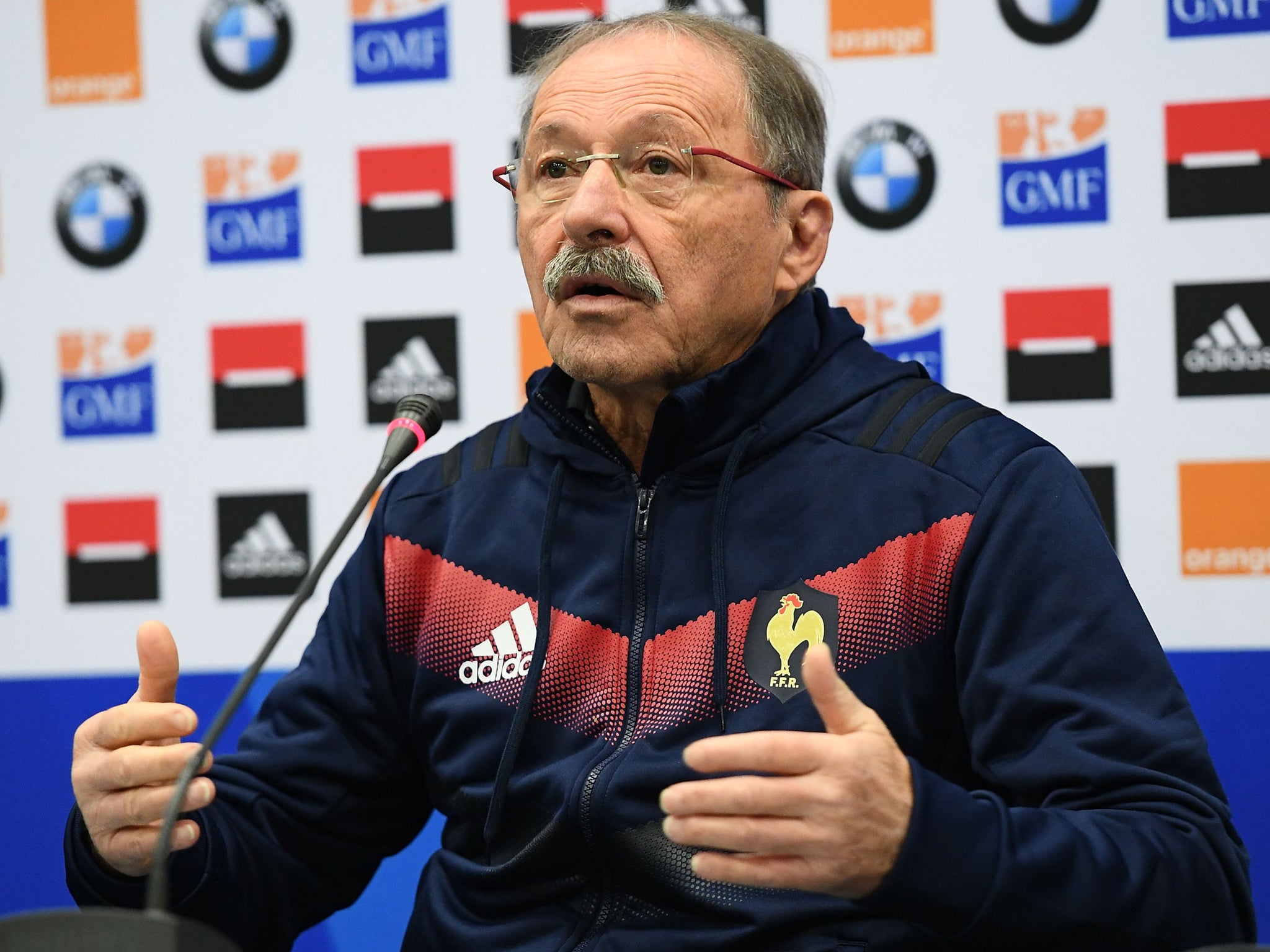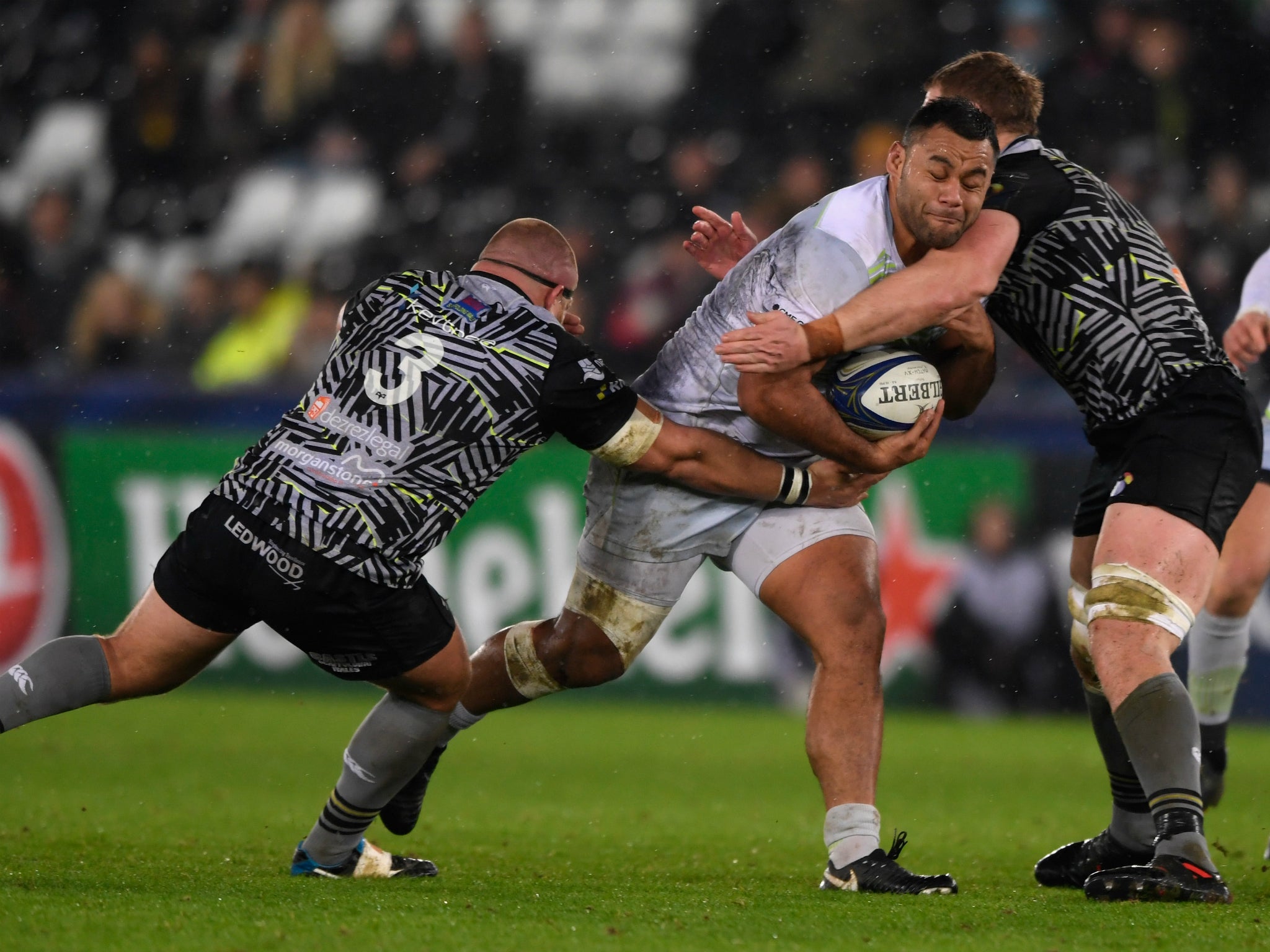Injuries, injuries and more injuries, but when the rugby starts, there's really nothing quite like the Six Nations
Many of the world's best players will be missing when the Six Nations begins, but with England looking to make history, Ireland hunting them down and Scotland

Your support helps us to tell the story
From reproductive rights to climate change to Big Tech, The Independent is on the ground when the story is developing. Whether it's investigating the financials of Elon Musk's pro-Trump PAC or producing our latest documentary, 'The A Word', which shines a light on the American women fighting for reproductive rights, we know how important it is to parse out the facts from the messaging.
At such a critical moment in US history, we need reporters on the ground. Your donation allows us to keep sending journalists to speak to both sides of the story.
The Independent is trusted by Americans across the entire political spectrum. And unlike many other quality news outlets, we choose not to lock Americans out of our reporting and analysis with paywalls. We believe quality journalism should be available to everyone, paid for by those who can afford it.
Your support makes all the difference.Rugby’s popularity may be increasing on a domestic level with growing crowd numbers and heavyweight European ties the year-round, but there is simply nothing quite like the Six Nations to put the sport on the biggest stage.
The competition is undoubtedly more competitive than its Southern Hemisphere rival, the Rugby Championship, and its availability on terrestrial television allows anyone and everyone to watch it if they are unable to secure tickets to the sold-out matches across Europe – which involve some of the best trips in the game.
Then there’s the rivalry: neighbours taking on each other week after week to determine who is the best side north of the equator. Scotland want to beat Wales, Ireland want to beat France in Paris, Italy want to beat anyone and everyone wants to beat England. It is the nature of the tournament, and as the rest of the year sees European teams take on the best of the Southern Hemisphere, this is the only time that the bragging rights are up for grabs outside of the Rugby World Cup.
It is also a championship of familiarity and that in itself breeds revenge. England will remember all too well last year’s Grand Slam-ending defeat in Dublin, while Wales will still feel the pain of Elliot Daly’s match-winning try in Cardiff that sent England fans back across the River Severn with smiles across their faces. Players, coaches and fans all carry the emotional scars for 12 months after a Six Nations defeat, and it means that the next match always means that little bit more when it comes around.
The rivalry does not stop with the players or fans, either. The rest of the year around, Eddie Jones will happily chat with Warren Gatland, or Joe Schmidt, but during the Six Nations there is a frosty hiatus put on any friendships. Listen to Jones and Conor O’Shea after last year’s ‘ruckgate’ encounter at Twickenham between England and Italy and you’d never have imagined the pair in the same room together again without coming to blows, but they were happily chatting at the Six Nations launch and will do so again in the future – as long as it falls outside of the tournament itself.
History plays a big part in the championship, since its formative days as the Four Nations, its expansion to the Five Nations in 1910 and again in 1947 after a 16-year hiatus, and the welcome addition of Italy in 2000. The famous Welsh side that dominated the 1970s followed France’s purple patch the previous decade, before England entered into their ding-dong battle with France for the best part of 20 years that culminated in the famous 2003 Grand Slam year. Since then, Wales have had their time, and so have Ireland, while Italy have had their moments that have been celebrated by every other Six Nations side barring the one of the wrong end of the upset win.
The Six Nations is a cherished tournament that doesn’t really exist outside of rugby union anymore. There is not Home Nations tournament in football, no real competition from the surrounding nations in cricket, England’s rugby league team would expect to steamroll any of these nations and when it comes to golf, they all play together to try and down the Americans every two years. The Six Nations is a tournament like no other and that translates to the attention that it attracts: pubs across the nation will consider turning off football to show rugby matches – when else does that happen during the year?
Finally, there is something that makes this year’s instalment that little bit special. England are gunning for history, with Jones’ side hoping to become the first team hoping to win the title outright three times on the trot. Ireland are tipped to pose the strongest challenge to them, with the sides behind only New Zealand in the World Rugby rankings, while Wales believe they have what it takes to rekindle the glory days under Warren Gatland of 2012 and 2013. France arrive in stereotypical turmoil, with a new coach, a new squad filled with young talent and face equalling their longest championship drought if they fail to win this year’s crown. Yet there is optimism among Les Bleus, and on paper, they certainly have the paper to cause an upset or two...or three...and that may just be enough to win see them end that barren run.
But it’ Scotland who could really spice this championship up, and after winning three of their five matches last season with Gregor Townsend now at the helm, there is not only hope north of Hadrian’s Wall, but a certain expectation that the Scots can go into the final weekend against Italy with a genuine chance to win the title.

It’s set up to be yet another fascinating tournament, but there is still a dark cloud overhanging this year’s Six Nations. As you will read later in this supplement, the ‘Six Nations Injured XV’ reads a who’s who of European rugby, and you can bet your bottom dollar that the number of players sidelined because their bodies have broken will be closer towards two sets of teams rather than one. Welfare is the big talking point in rugby union this season and with good reason, as not only are players turning out more frequently than ever before, but the games are akin to international intensity across the board at domestic level and in-game impacts are registering at an all-time high.
More contacts means more risk of injuries and a championship like the Six Nations without its best players – the Billy Vunipolas, the Sam Warburtons, the Wesley Fofanas – just doesn’t feel right. Yes, injuries will always happen in rugby, there is no looking beyond that. But the number of injuries to the sport’s fittest and most gifted players should be of real concern.

But the one solace is that once the first whistle goes in Cardiff this Saturday to begin this year’s Six Nations, that familiar thrill, that spine-tingling rush and the feeling of the hairs standing up on the back of your neck, will all come flooding back, and for the next six weeks, nothing else will feel as important as the rugby.
Join our commenting forum
Join thought-provoking conversations, follow other Independent readers and see their replies
Comments